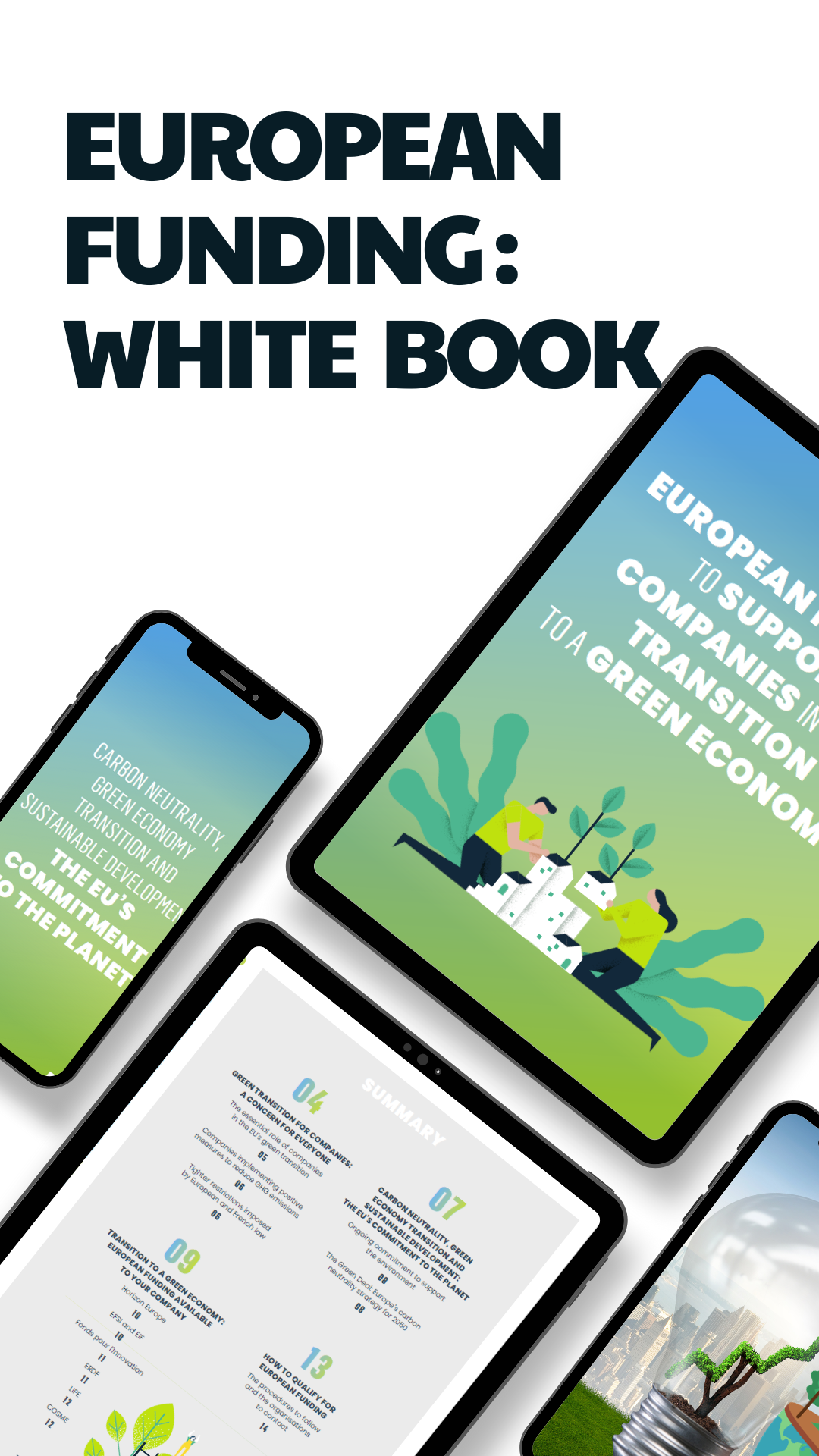In December 2019, the French Association for Jobs in Management (Apec) published the study “Réalités du marché de l’emploi cadre dans l’environnement “ [The realities of management opportunities in the environmental job market], using data from an analysis of vacancies published between 2016 and 2018 and from a search of the database on Main qualifications and training offered by public establishments reporting to the ministry. This research showed that environment is not only developing but it’s seen as a very attractive market, but the managerial skills required are mainly around the highly technical professions, so making recruitment difficult.
According to Onemev (the French National observatory of jobs and professions in the green economy) the green economy represents almost 900,000 equivalent full-time jobs worldwide (managerial and other). This covers both eco-activities (producing goods or services with the ultimate purpose of environmental protection or the management of natural resources) and peripheral activities (producing goods or services helpful to the protection of the environment or the sustainable management of resources, without that being the ultimate purpose). The number of employees working in these various activities increased by 5.2% between 2004 and 2016.
A colourful panorama of education and training
For the year 2017-2018, there were no fewer than 414 general training courses providing the grounding for a qualification of Bac+4 [first degree] and beyond, with an environmental component being offered in France. These figures may include the same course being taken at different establishments. In 8 out of 10 cases this training is provided by universities, the others being offered by engineering schools, élite specialised institutions etc. More than two-thirds (68%) relate to the engineering sciences. According to the study’s authors, this translates into education with a greater focus on developing the technical skills necessary for designing application products and solutions, and less on fundamental research. Specialist fields are very varied, paving the way for multiple opportunities (e.g. climatology, oceanography, eco-system management etc.) The remaining education is split between the humanities, law, economics, economic & social administration (8%) and health (1%), leading to careers with more of a legal or public services direction (e.g. land-use planning and the living environment) At the start of the 2017 academic year, as many as 25,300 students were enrolled in such education, bearing witness to just how attractive this is. This at times required those managing this education to be selective with the applications received.
Management skill requirements are focused around highly technical professions
In 2018 Apec posted 8,100 managerial job openings related to the environment, making up 1.6% of all vacancies published. Over two-thirds (68%) of the vacancies came under services with almost half being provided by R&D engineering companies. The other sectors publishing vacancies in the environmental field are manufacturing (18%), construction (9%) and commerce (5%).
Six main professional groups
In 2018, over half the “environmental” positions published were for professionals in the prevention and handling of pollution, nuisance and risk, and professionals in human protection and occupational health & safety. The first (27%) related primarily to water or soil treatment and waste management, together with research into clean technologies to reduce the impacts of companies and manage industrial risks. The second (26%) covered the monitoring of food quality or environment/health links, and everything to do with CSR in matters of QHSE.
Next at 16% each are the professions of land-use planning and living environment (infrastructure construction, the maintenance of green spaces) and of energy management and renewables, which also include building energy management.
The study then cites environment societal management, which makes up 10% of the vacancies. This primarily relates to careers working to raise awareness of environmental challenges and those enhancing economic, legal and judicial knowledge as well as those dedicated to the circular economy.
Finally, the sixth category (5%) is for careers in protecting nature, the management and study of environments and ecological balances generally provided by State departments or specialist associations. The proportion of this category has halved over the space of two years without this reduction being absorbed into any one particular group. In fact, the number of job vacancies has increased in every other category, the weight of each remaining largely unchanged.
Most popular professions by category
- Prevention and handling of pollution, nuisance and risk: design engineers or hydraulic engineers; managers for ground/soil decontamination projects; industrial risk prevention engineers; water treatment engineers; sanitation project leaders
- Occupational health and safety: QHSE managers; QHSE facilitators; QHSE auditors and trainers
- Land-use planning and living environment: roads & utilities design engineers; urban planning project managers; cartographers; green spaces managers; landscaping project managers; geomatics engineers
- Energy management and renewables: solar power project managers; energy efficiency engineers; wind power project managers
- Environmental and social management: environmental engineers; environmental lawyers; environmental property administrators
Versatility and experience often make the difference
Depending on the type of profile sought, recruiters may express difficulties for several reasons. On the one hand, some markets may be impacted by a particular situation and increasing competition. For example, in the Paris Region the context of works for Greater Paris or the 2024 Olympic Games demonstrates a certain shortage of specialists in urban planning and management. Further, companies are always on the lookout for versatile managers or at least, for those comfortable in more than one sector. A typical example would be a business manager specialised in the environment who also had to demonstrate sales skills and capability in energy efficiency or decontamination. Finally, as with all management positions, the vacancies offered frequently require a significant amount of experience. Thus, between 42% and 76% of vacancies published in 2018 were aimed at candidates who already had over two years’ experience, in particular in the sectors of QHSE, land-use planning and risk prevention/reduction. This, according to the authors, shows the training challenge which had to be both vocational and academic. Here, the authors pointed out the benefits of mixed training courses which equip many young graduates with the knowledge they need to be hired upon completing their education.
A vocational training space at Pollutec 2020
The differing contracts in the sector (water, waste, new energy systems, chemicals and materials, marine industries etc.) are all promoting employment, training and skills development. Many have launched Skills Investment Plan research and plans for mixed training, with time spent both in the classroom and in industry. For its part, in 2018 France’s Circular Economy Roadmap (FREC) indicated the goal of creating 300,000 jobs. It’s apparent that the theme of employment, training and skills is becoming increasingly important.
Pollutec has organised a Vocational Training Space at the show for a number of years, and is now re-inventing the formula with several key partners in order to forge ever more links between exhibitors, recruiters and visitors seeking employment. A networking tool is offered in the run-up to the show itself, with a programme of activities around the major themes taking place over the four days and, as in 2018, Friday will be more specifically dedicated to the theme of Environmental Employment.
Note: Pexe-Ecoentreprises de France is undertaking a study on the jobs and skills in eco SME and VSB at the request of the French Employment Ministry, the Ministry for the Ecological & Inclusive Transition and Ademe. With time, a planned monitoring and analysis platform for jobs and skills will be offered and actions implemented by the regions in these sectors will be catalogued. The survey will run until 15 September 2020 (see https://ecoentreprises-france.fr).




